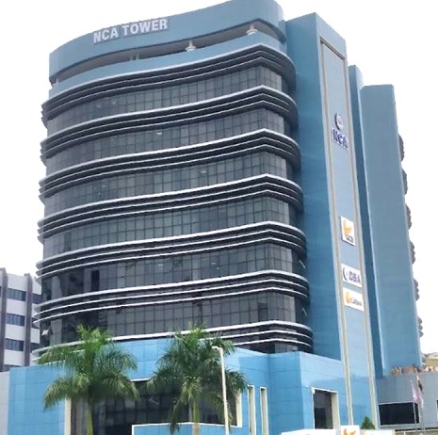At the core of global connectivity, the telecommunications sector propels advancements in digital services, mobile communications and internet accessibility.
As digital transformation accelerates, the telecommunications industry is presented with new challenges as well as new opportunities.
Due to the industry’s crucial role in global communication and connectivity, it is highly regulated. Guidelines form part of the legal instruments that are essential in the efficient utilisation of resources including spectrum, service quality, data security and competition.
They also support the establishment of a structured, transparent and fair regulatory environment that benefits stakeholders in terms of compliance and operational planning as well as the regulatory body in its enforcement of activities.
Regulatory bodies play a critical role in shaping industry standards and ensuring compliance with best practices.
One of the primary functions is to draft and enforce guidelines that protect consumers, ensure compliance and fair competition as well as promote ethical business practices.
In Ghana, the National Communications Authority (NCA or the Authority), established by an Act of Parliament in December 1996, is the statutory body mandated to license and regulate electronic communications activities and services. The NCA therefore operates based on acts, regulations and guidelines.
As a Regulator, Section 3 (r) of the National Communications Authority Act 2008 (Act 769) confers power on the Authority to issue guidelines and standards from time to time for the purpose of achieving its objectives.
From 2017 to date, the Authority has implemented numerous regulatory initiatives aimed at meeting industry demands while adapting to global trends, technological advancements and market dynamics.
These interventions are curated in accordance with all the underlying legal principles.
The issuance of guidelines involves a structured, multi-stage process to ensure they are practical, well-considered and meet the needs of all stakeholders.
Before a particular guideline is finalised and gazette, it undergoes internal deliberations as well as public consultations and stakeholder engagements. This comprehensive approach ensures that the guidelines are shaped by a range of perspectives and are suitable for effective implementation.
Below are the guidelines that have been issued within the past seven years;
Deployment of communications towers, antennas
The Ministry of Communication’s National Telecommunications Policy underscores the policy objective of Government to ensure that every citizen and resident have available high quality and affordable access to information and communications services. This is to help transform Ghana into a knowledge-based society and technology-driven economy.
Achieving this objective demands, among other things, the rapid deployment and expansion of towers and related communication infrastructure and facilities across the country to accommodate wireless technology.
Such wireless technologies require mounting of antennas on supporting structures at an appropriate height to achieve maximum coverage and throughput which must be done with due consideration for the environment, aeronautical and public safety, visual aesthetics, as well as optimisation of land use. Hence, the issuance of this Guidelines.
Mergers, acquisitions
It is the Authority’s objective to have clear regulatory framework for the industry and investors in order to assist parties concerned to make informed decisions on merger and acquisition activities particularly as they relate to network operators.
As a result, the NCA developed these Guidelines for dealing with mergers or acquisitions of communication entities and other related matters, outlining the legal requirements, policy considerations, practices and enforcement policy of the National Communications Authority with respect to transfer of shares, mergers or acquisition of a communication entity.
As mandated by Section 3(e) of the National Communications Act, 2008 (Act 769) to ensure fair competition among Licensees, Operators of communications networks and service providers of Public communications, the Authority considers competition policy as a means to enhance economic efficiency and free trade, thereby benefiting consumers.
The NCA, in carrying out its mandate, is eager to avoid monopoly being created in the industry. It seeks to identify and challenge competitively harmful mergers while avoiding unnecessary interference with mergers that are either competitively beneficial or neutral.
Procedure for granting approval to disconnect telecommunications service operators
These guidelines are intended, among other things, to ensure fair competition amongst licensees, authorisation holders, operators of communications networks and service Providers of public communications services, whilst protecting the interests of consumers or users of communications networks or communications services, and in particular, their freedom of choice, and right to quality of service and value for money.
Additionally, the guidelines are developed to ensure that the procedure for granting approval for the impairment, termination or disconnection of a user is founded on a predetermined framework to engender transparency, certainty and fairness.
Guidelines, computation, payment of annual regulatory, contributions
The main objective of this document is to assist Licensees who are required to pay one per cent of their net revenues as annual regulatory fees to the NCA and contributions to GIFEC to accurately report and compute the applicable percentage of net revenues that are payable to the NCA and GIFEC.
These guidelines took effect on September 1, 2024.
Dispute Resolution Committee User Guidelines
The Dispute Resolution Committee (DRC) User Guidelines aim to provide guidance for all stakeholders in the electronic communications industry and to provide them with a practical understanding of the rules and operations of the DRC established under sections 84 and 85 of the ECA.
The User Guidelines listed amongst others have been issued and are binding on all stakeholders. The NCA will continue to exercise its mandate as stipulated by the National Communications Authority Act, 2008 and ensure a sanitised communication space in the country.
Consumer and Corporate Affairs Division, National Communications Authority .

